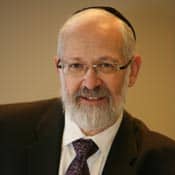"Never again" became the byword of the Second Generation, the children of Holocaust survivors. It was more of a declaration of purpose and intent than a prediction. Who could know? For survivors themselves, however, "never again" was a magic formula that could give meaning to the unspeakable. Unable to escape their nightmares, many survivors comforted themselves by believing that if the world had learned something through their stories, then at least they could rescue some meaning from their horrific experiences. Demonizing Israel and the Jews by Manfred Gerstenfeld (RVP Press, New York, 2013) will have the unintended consequence of dashing those hopes.
For survivors, "never again" had two components. It meant that the world had put mass murder behind itself. It would never turn a blind eye and deaf ear to the plight of a huge number of people threatened by extermination. From this point on, a shocked world would not allow itself to become either perpetrator or silent witness. Moreover, international law would itself be a barrier against future holocausts. Raphael Lemkin, a Polish-Jewish lawyer, coined the word "genocide" to describe the willful destruction of an entire nation or ethnic group. He successfully traced the connection between world silence over the Armenian genocide by the Turks and the mass destruction of Assyrian Christians by Kurds, and the extermination of Europe's Jews. As the world accepted the notion of genocide as a crime against humanity, it surely would not occur again. Or so survivors thought. A Holocaust, they reasoned, is too horrible a thing to waste. The good that would come out of it would be the end of genocide. That thought brought them some solace.
The solace was short-lived as the images from Rwanda, Srebrenica, and Darfur demonstrated that the mass slaughter of targeted groups did not end with the Holocaust. Genocide became a recurring feature of the news cycle, like the leaves turning color in the fall. Survivors could not look to the extinction of genocide as their contribution to history.
Still, survivors thought, the Holocaust had brought some protection against the form of racism they knew best—anti-Semitism. Surely people would be embarrassed to express anti-Semitic thoughts while the world was aware of the fast lane between hatred of Jews and extermination camps. Perhaps their experience at least contributed to a safer world for their own children and grandchildren.
The survivors were not wrong. For decades, freely expressed anti-Semitism was gauche, not socially acceptable among refined people. The survivors, however, had not bargained on two factors: brevity of memory, and the extent of Arab incitement. The former allowed the work of the far right and far left to have some impact on the center; the latter makes the streets of Europe once again physically unsafe for Jews.
By way of scores of interviews, Demonizing Israel and the Jews provides the reader with a troubling overview of the causation, impact, and extent of a resurgent anti-Semitism that has risen from the ashes of the Holocaust. The interviewees speak from personal and academic experience about France, Germany, Switzerland, Sweden, Norway, Belgium, Finland, the Netherlands, Argentina, Holland, Turkey, Egypt, Libya, and Iran, demonstrating that renascent anti-Semitism is a global—not local—phenomenon. Experts home in on the contributions of church groups, media, and internet hate sites. The contributors are Jewish and non-Jewish, and include such important names as Irwin Cotler, Justus Reid Weiner, Ayaan Hirsi Ali, Richard Landes, and Robert Wistrich.
The articles read like a succession of eulogies at a memorial service for world decency. Before even walking into the room, the author/interviewer makes sure that the reader has taken a good look at the body. Gerstenfeld is the former Chairman of the Board of the Jerusalem Center for Public Affairs, a Jerusalem based think tank, and a prolific author. In 2012 he received the Lifetime Achievement Award of the Journal for the Study of Antisemitism. His introduction to the volume considers the results of a 2011 poll by the German Friedrich Ebert Foundation, conducted by the University of Bielefeld. Among other questions, one was intended to measure the most extreme antipathy to Israel. The pollsters asked respondents (one thousand in each of seven European Union countries) whether they agreed with the assertion that Israel "is carrying out a war of extermination against the Palestinians." That statement -- particularly in Europe—would equate Israel with Nazi Germany, and could be presumed to show hatred of Jews, not just Israel.





